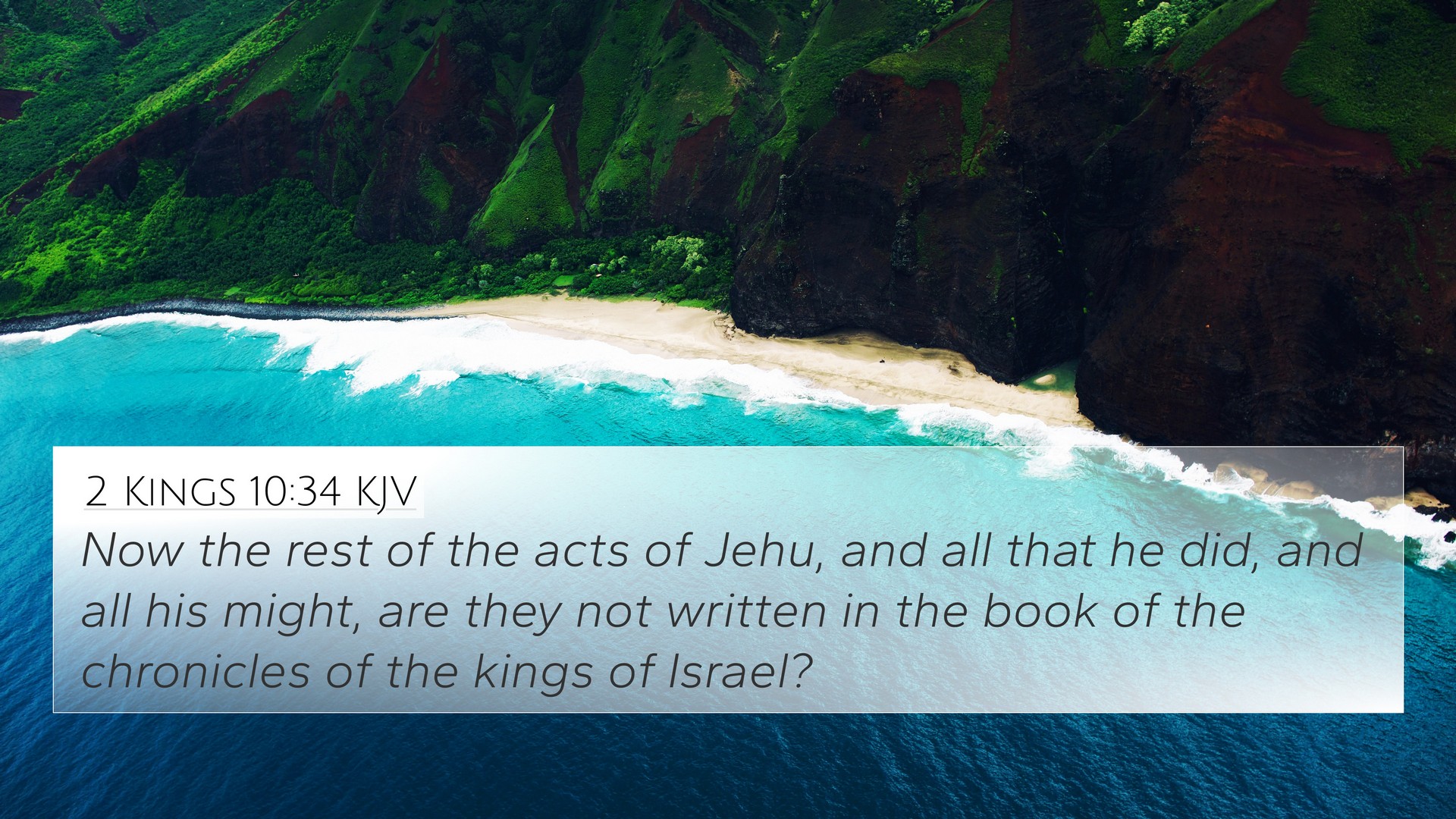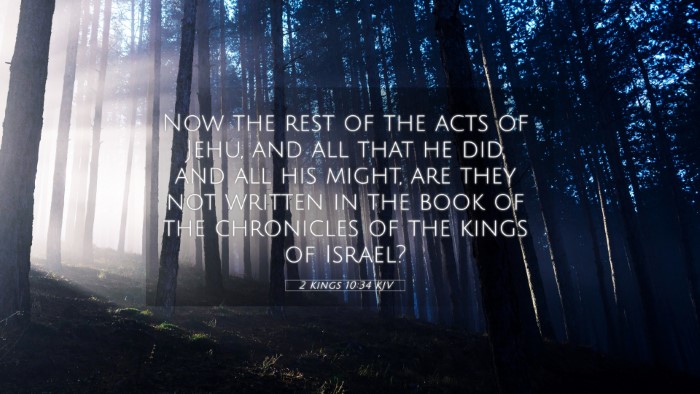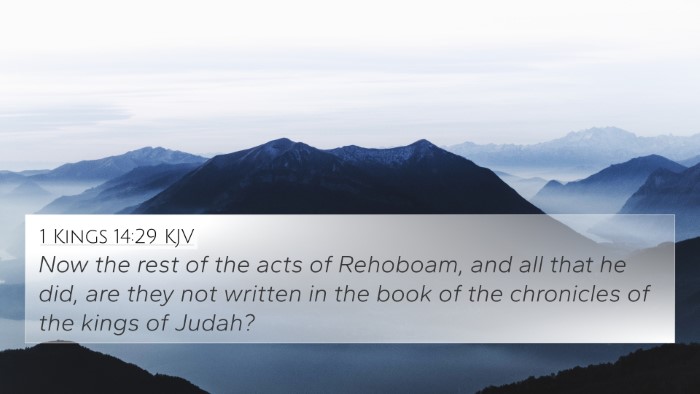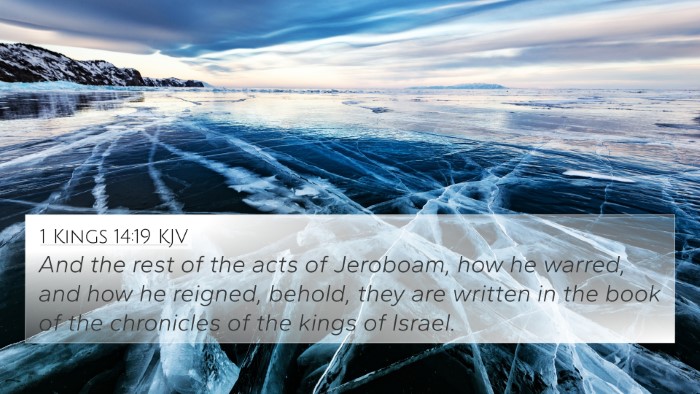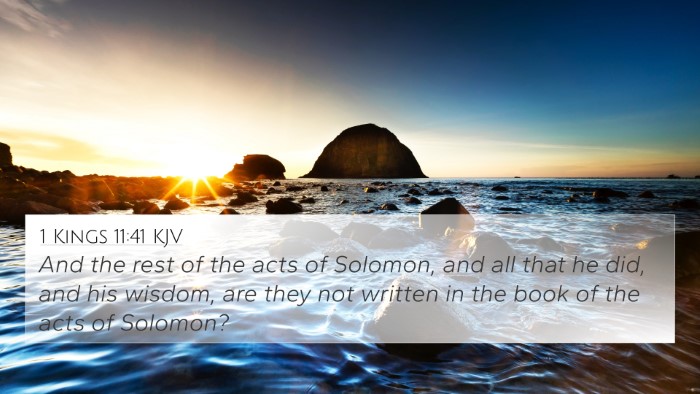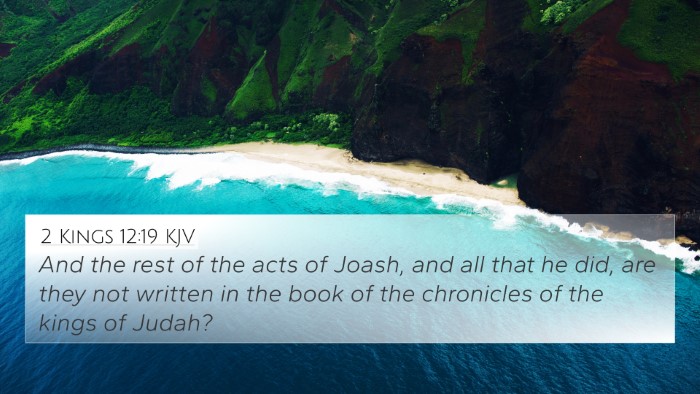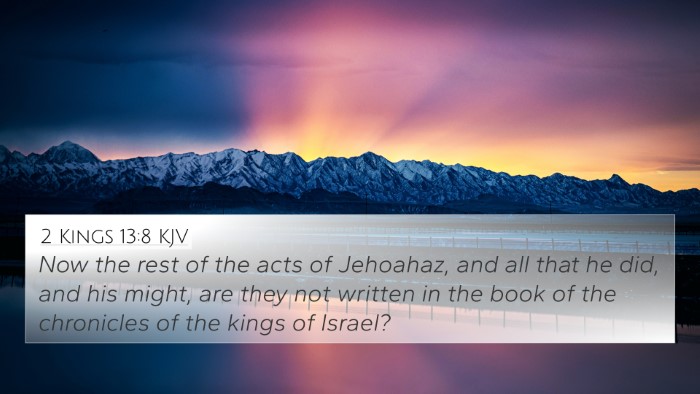Understanding 2 Kings 10:34
Verse Reference: 2 Kings 10:34
Verse: "Now the rest of the acts of Jehu, and all that he did, and all his might, are they not written in the book of the chronicles of the kings of Israel?" (2 Kings 10:34, ESV)
The verse serves as a concluding statement regarding the reign of King Jehu, summarizing the accounts of his actions and the extent of his might. The commentaries provide rich insight into its implications, reflections, and connections within the broader Biblical narrative.
Commentary Insights
This verse, though seemingly straightforward, invites deeper reflection into the historical and theological context of Jehu's reign. Let's summarize insights from notable public domain commentaries:
-
Matthew Henry:
Matthew Henry emphasizes the importance of documenting the deeds of kings, noting that he was a significant figure who performed mighty acts as God ordained. His account referred to a collection of records, indicating that God's providence and work in history are recorded for posterity.
-
Albert Barnes:
Barnes explains that the phrase “book of the chronicles of the kings of Israel” signifies a historical record that provided future generations with insights into Israel's kingship. This suggests a value in historical documentation as reflecting God's sovereign acts in governance.
-
Adam Clarke:
Clarke interprets the verse as a prompt to study the scriptures more carefully, understanding the background of Jehu's actions and the fulfillment of prophecy in his reign. His deeds are considered both praiseworthy and a fulfillment of divine judgment against Baal worship.
Thematic Connections and Cross-References
2 Kings 10:34 illustrates significant themes in Biblical history, serving as a bridge to many other verses concerning leadership, divine judgment, and spiritual fidelity. Here are some key thematic connections:
- Leadership and Divine Calling: Jehu's rise to power was predestined as he was chosen to eradicate Baal worship (see 2 Kings 9:6-10).
- Accountability in Leadership: The question of whether Jehu's acts are written emphasizes the need for leaders to act justly under divine guidance (compare with Proverbs 16:12).
- Historical Documentation: The mention of the 'chronicles' serves as a reminder of the importance of preserving history, connected to the entirety of the Old Testament history (see 1 Chronicles 29:29).
- Fulfillment of Prophecy: Jehu’s acts are ultimately part of God’s plan as outlined through Elijah (1 Kings 19:16-17).
- Judgment on Idolatry: The eradication of Baal worship foreshadows the greater call to faithfulness to God, linking to the prophetic writings of Amos and Hosea.
- Regal Accountability: The mention of strength invites comparison to other Biblical figures who were mighty in deeds (e.g., David in 1 Samuel 16:18).
- Legacy of Kings: The emphasis on chronicling kings’ acts highlights how leaders are remembered in spiritual context (compare with Matthew 1:1 concerning Christ’s lineage).
Cross-References for 2 Kings 10:34
To deepen your study, here are 10 Bible verses that relate to the themes found in 2 Kings 10:34:
- 1 Kings 19:16-17: God's command to anoint Jehu as king, establishing his mission.
- 2 Kings 9:6-10: Jehu's anointing and the prophecy about his mission against Baal worship.
- 1 Chronicles 29:29: Reference to recordings of the kings of Israel and their acts.
- Amos 7:9-11: The prophetic judgment that reflects on the nature of Israel's kingship.
- Micah 6:16: A call to understand the consequences of Israel’s kings following sinful paths.
- Proverbs 16:12: Righteousness in leadership, correlating to the actions of Jehu.
- 2 Kings 12:2: Joash also did what was right in the eyes of the Lord, akin to Jehu's actions.
- Matthew 1:1: Establishing the legacy and covenant fulfillment through the kings.
- Hosea 1:4: God’s commands in Israel regarding judgment and the aftermath of idolatry.
- 1 Samuel 16:18: Reference to David as a mighty man, enhancing the theme of power in kingship.
Conclusion
In summary, 2 Kings 10:34 is not merely a reference to historical accounts but serves as a rich tapestry woven with theological implications. Understanding the implications of Jehu's reign through these commentaries encourages believers to appreciate the divine oversight in history and the ultimate calling for fidelity to God's purpose. The cross-references highlight that throughout scripture, God's interactions with His chosen leaders frame our understanding of faith, governance, and historical testimony. Tools for Bible cross-referencing can enhance our study, leading to a greater appreciation of the interconnectedness of scripture.
As you explore the connections between Bible verses, consider how this verse fits into the larger biblical narrative. Reflect on how Jehu’s legacy, actions, and the chronicling of his reign provide lessons for contemporary faith and leadership.
